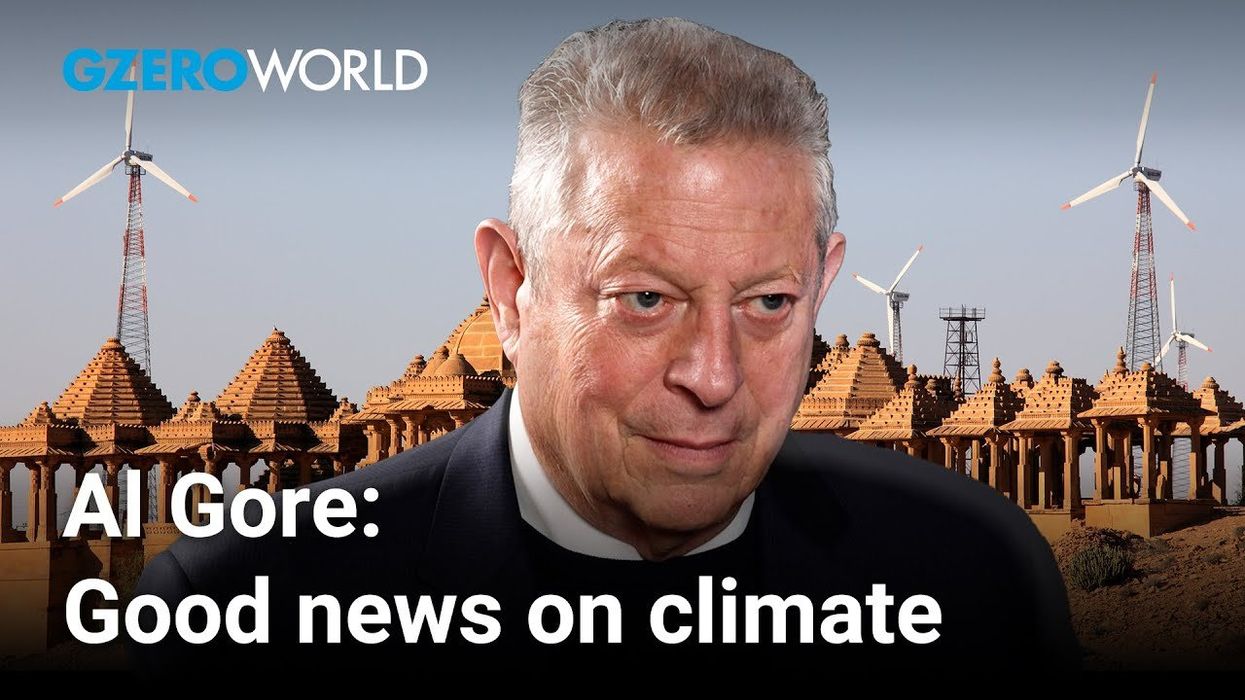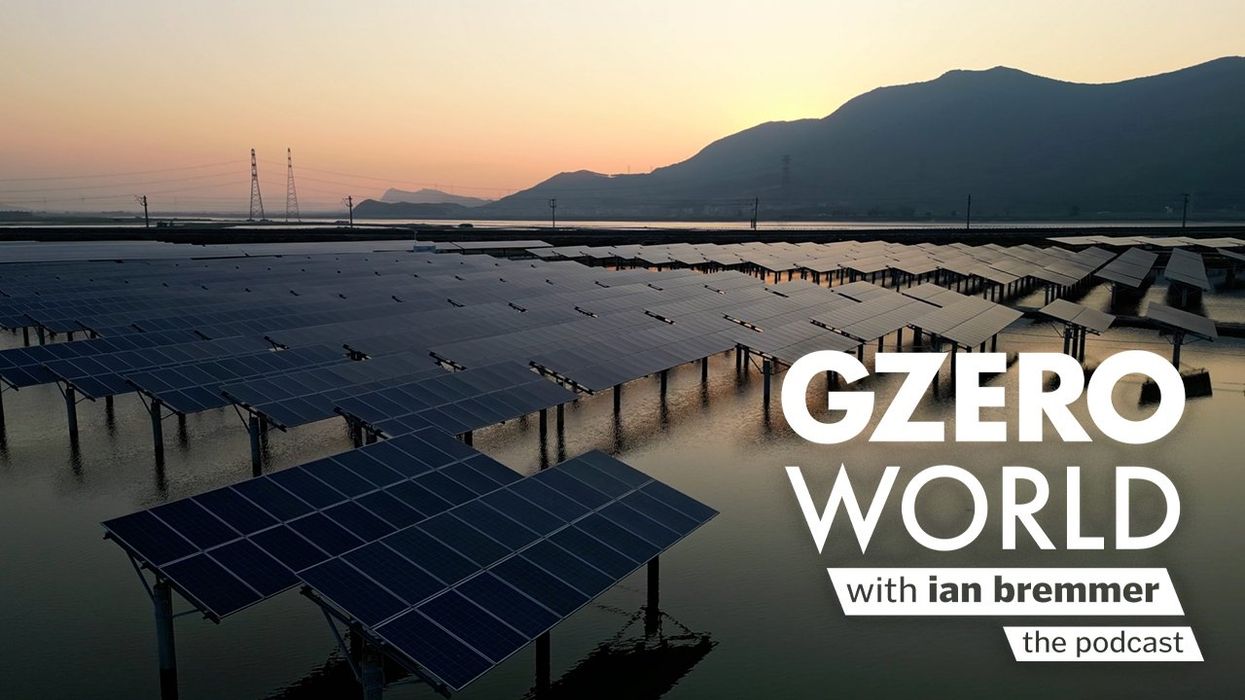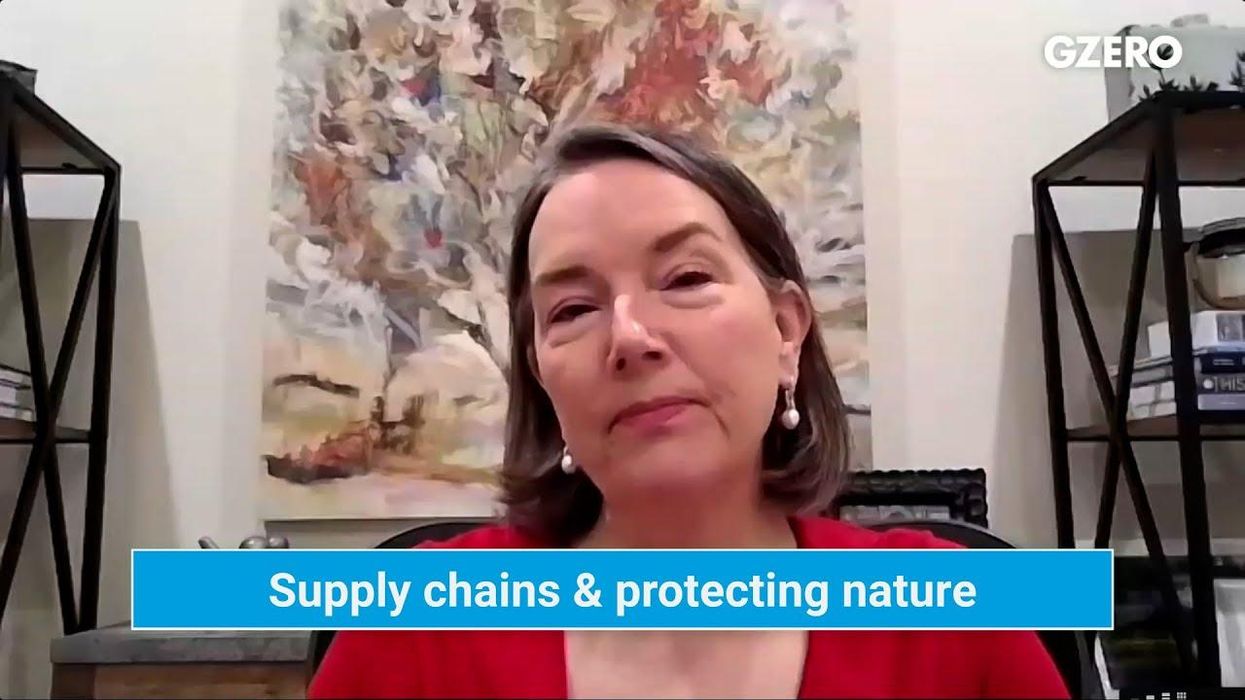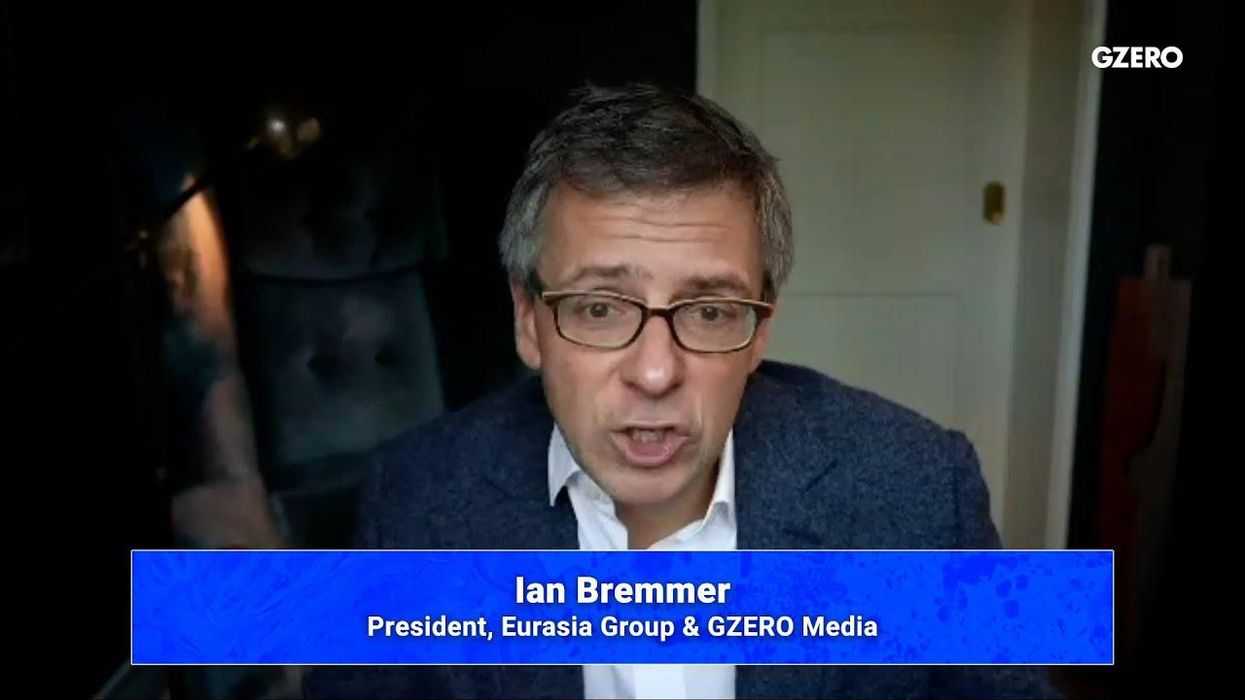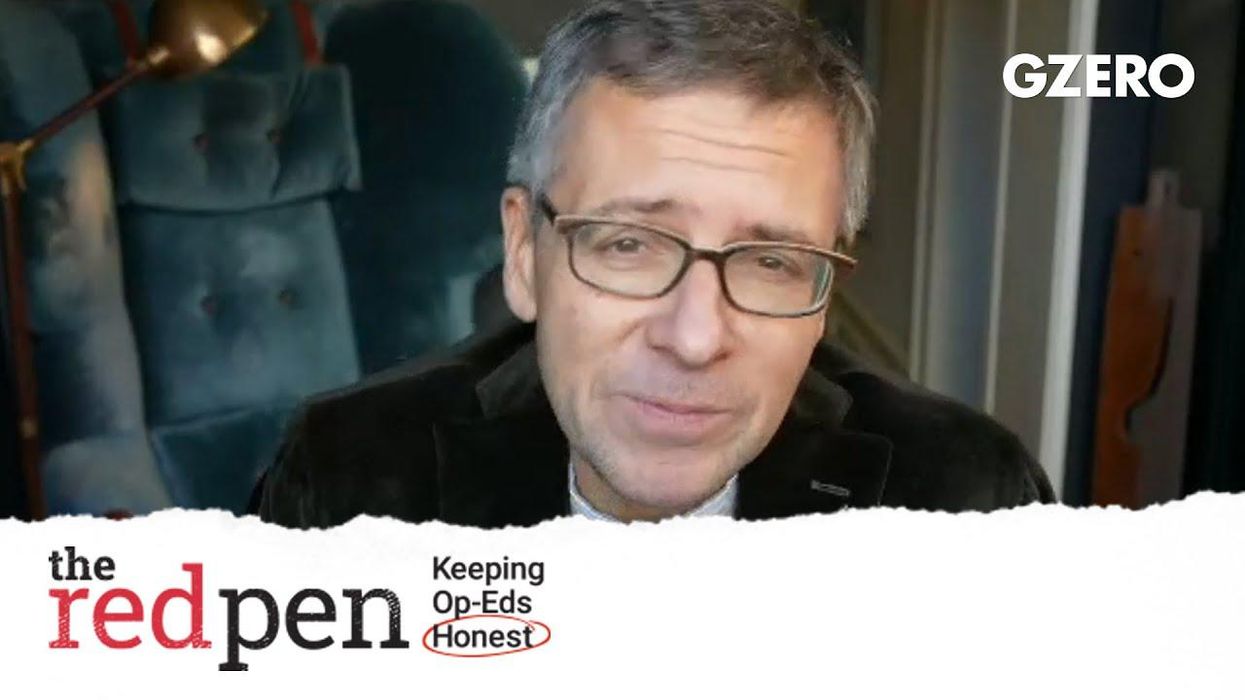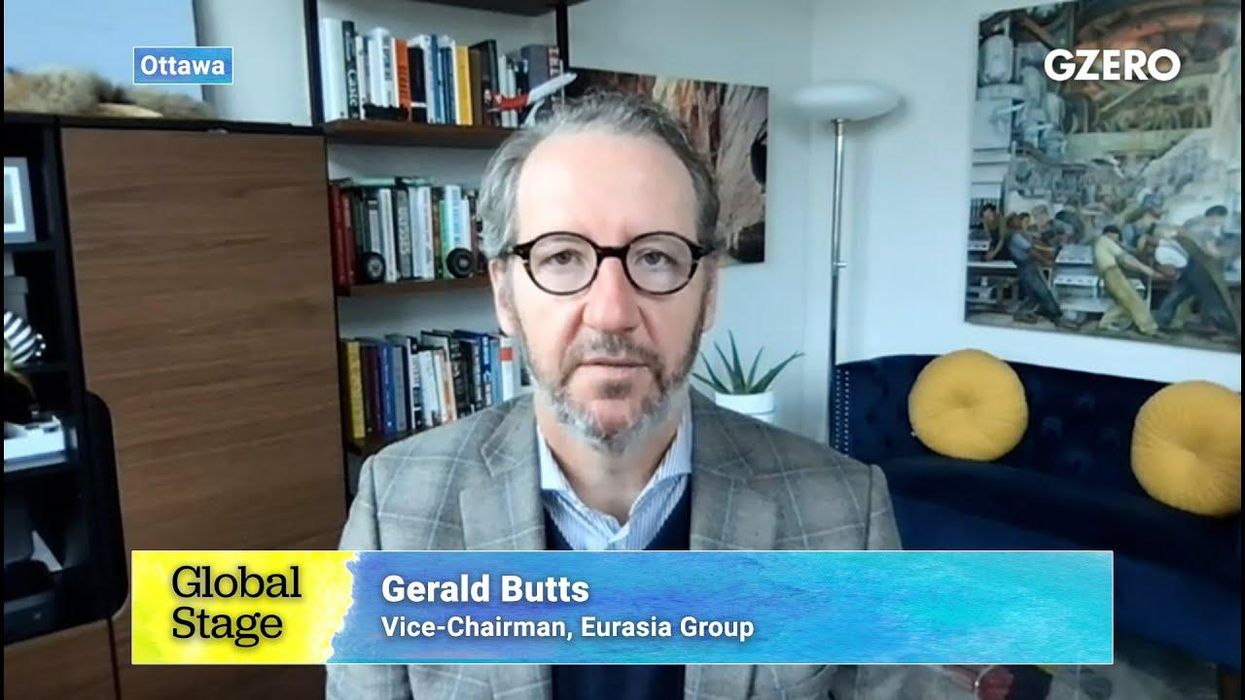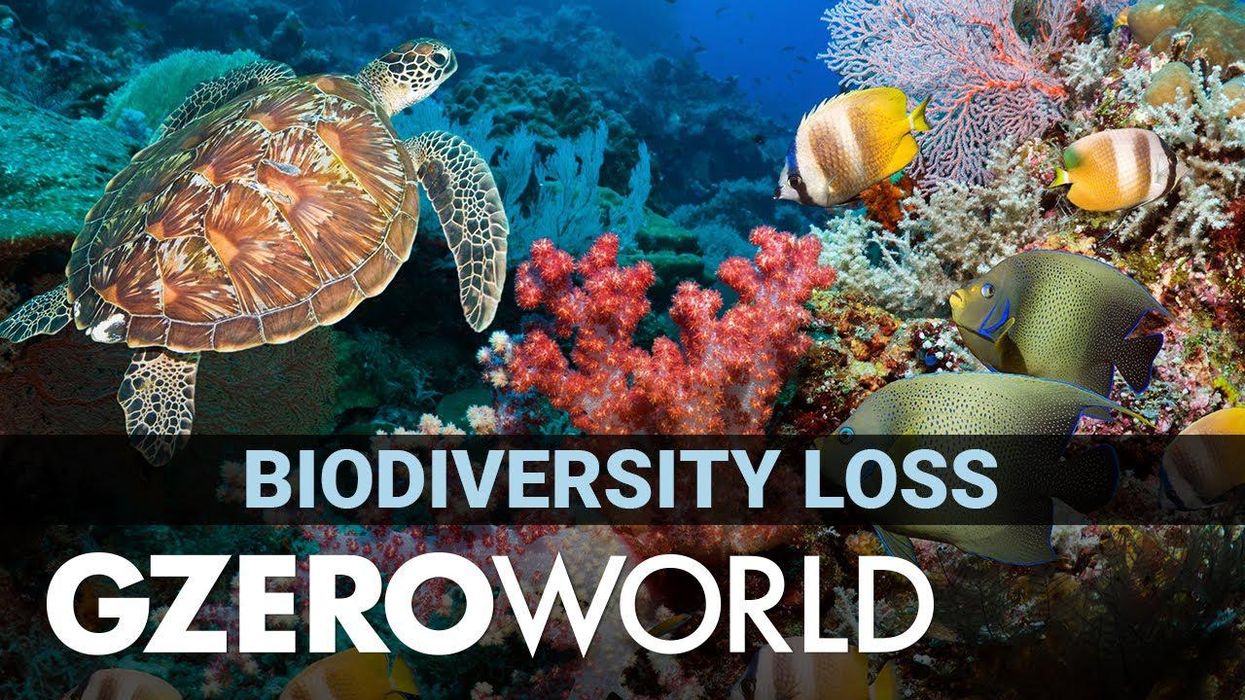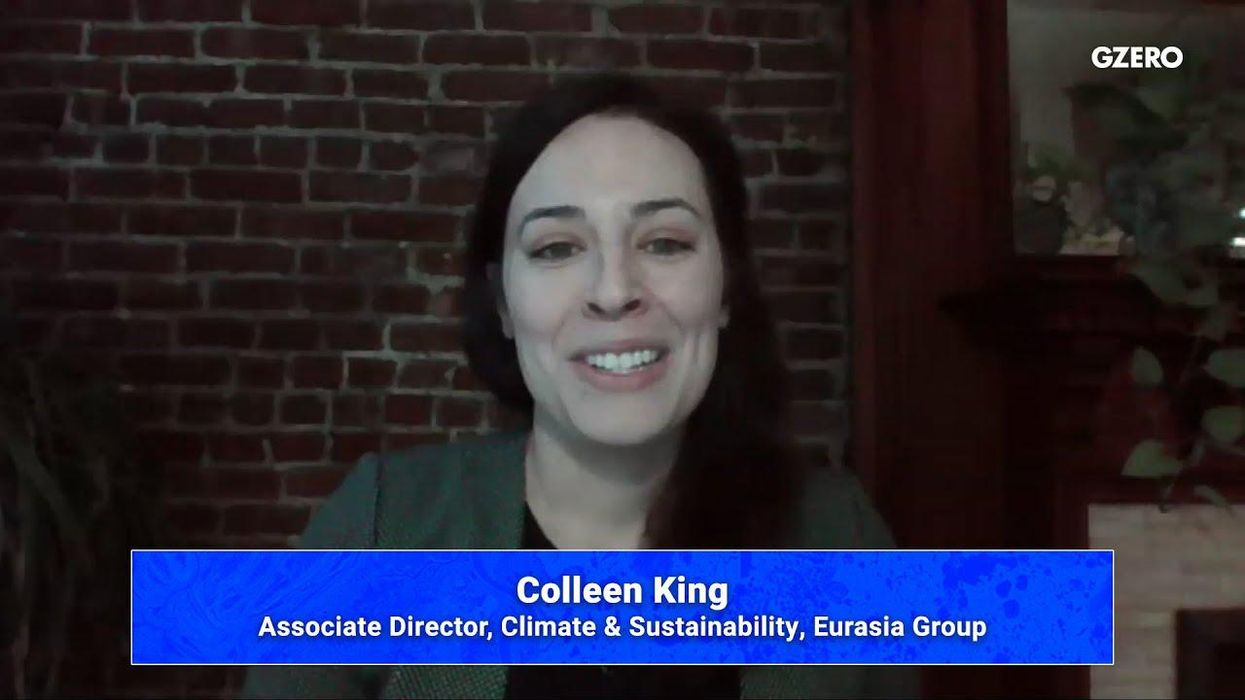GZERO World Clips
Al Gore is optimistic about our climate future
Former US Vice President Al Gore is known to many as the Paul Revere of climate change, alerting the world to the dangers of a warming planet and other "inconvenient truths" at a time when only 2/5 Americans were onboard with his message. It earned him a Nobel Peace Prize.
Jan 31, 2024
